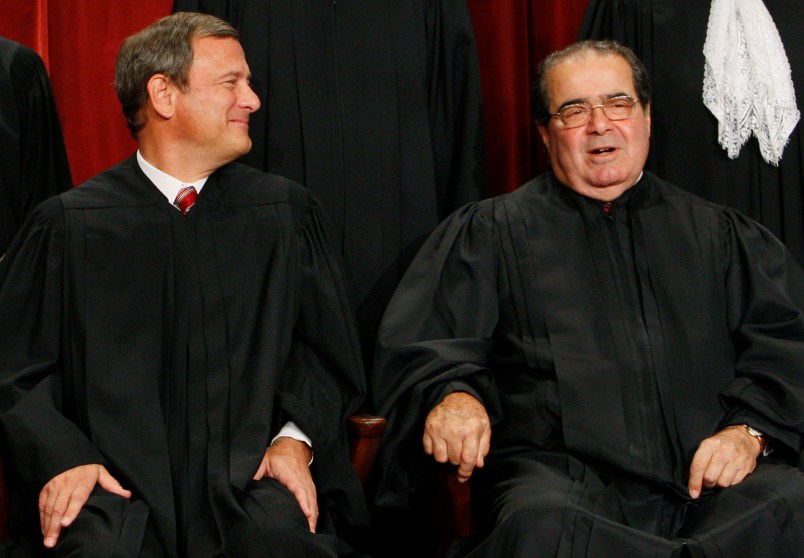During oral arguments Tuesday, conservative Supreme Court justices appeared broadly ready to rule against the birth control mandate under Obamacare, and their line of questioning indicated they may have a majority to do it.
Chief Justice John Roberts and Justices Antonin Scalia and Samuel Alito expressed no sympathy for the regulation while appearing concerned for the Christian business owners of Hobby Lobby and Conestoga Wood who said the contraceptive mandate violates their religious liberty and fails strict scrutiny standards under the 1993 Religious Freedom Restoration Act (RFRA).
“Under your view, a profit corporation … could be forced in principle to pay for abortions,” Justice Anthony Kennedy, the traditional swing vote, told U.S. Solicitor General Donald Verrilli, who was defending the law.
Kennedy wasn’t so unequivocal as that question suggested, signaling in his other remarks that the outcome is unclear. Still, he appeared to be leaning against the government. He warned that the administration’s reasoning could lead to more onerous mandates. He wondered aloud if other exemptions under Obamacare, such as the accommodation that lets religious nonprofits opt out of paying for contraception, suggest that the government has decided the services were “not that important.”
At one point, however, Kennedy alluded to a common argument by supporters of the birth control rule, asking if the “rights of the employees” to whom Congress promised contraceptive services were “trump[ed]” by the rights of the religious business owners. He asked the challengers’ lawyer if axing the mandate would “put the employee in a disadvantageous position.”
Alito wondered if there were “ways of accommodating the interests of the women who may want these particular drugs or devices without imposing a substantial burden on the employer who has the religious objection to it.”
The female justices led the charge in questioning the challengers’ lawyer, Paul Clement. When Justice Elena Kagan posited that a ruling against the government could empower businesses to sue for exemptions from other laws, such as the minimum wage, Alito jumped in to counter, “Have any of these claims involving the minimum wage been brought [since RFRA was passed] and have they succeeded?” he asked. (The answer was no.)
When Kagan later argued that the business owners had a choice, and could simply pay the tax penalty for noncompliance with the mandate, Scalia jumped in to call that an “absurd” suggestion, contending that it would harm them financially.
Justice Clarence Thomas didn’t speak during the arguments — he almost never does — but his staunchly conservative views and history of jurisprudence makes him a likely candidate for voting against the government.
The contraception case has become a flashpoint in the broader war over Obamacare. It’s the second Obamacare-related case to come before the Supreme Court. In the 2012 case about the individual mandate, a linchpin of the law, four conservative justices voted to wipe out the Affordable Care Act entirely while Roberts sided with the liberal justices to uphold most of it.
The Obamacare rule in question during arguments on Tuesday requires employer plans to provide 20 contraceptives without a co-pay, four of which are at stake: Plan B, Ella and two types of intrauterine devices (IUDs).
“You’re talking about, what, three or four birth controls, not all of them, just those that are abortifacient,” Scalia said. “That’s not terribly expensive stuff, is it?”






